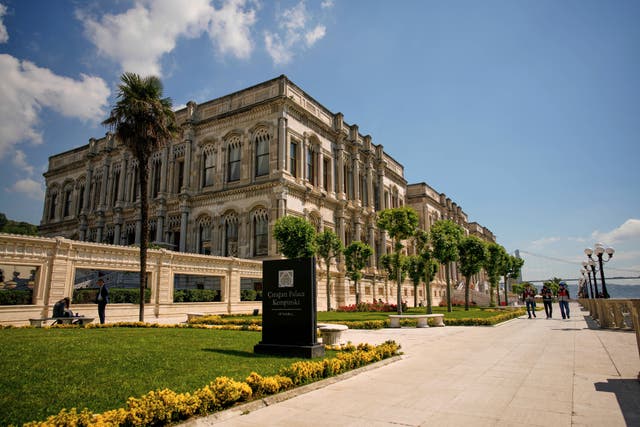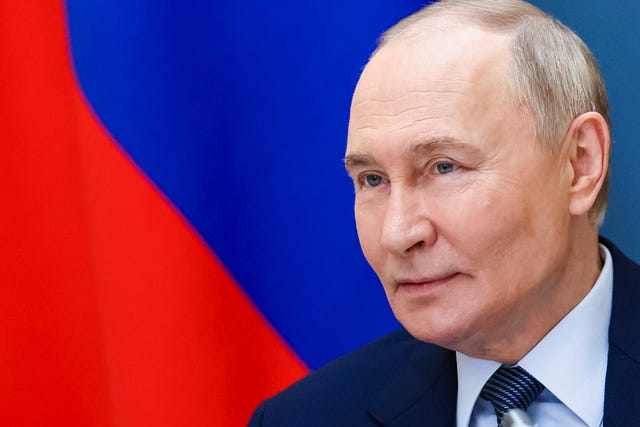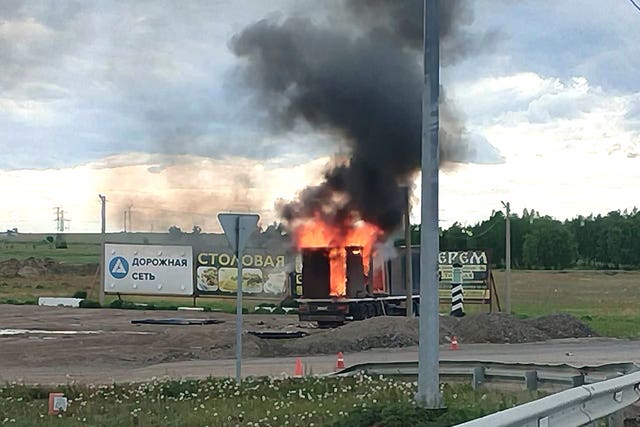Ukraine and Russia end latest round of direct peace talks in Istanbul
The second round of negotiations in just over two weeks in Istanbul came after a string of attacks over the weekend.

Delegations from Russia and Ukraine have ended their latest peace talks in Turkey after just over an hour, Ukrainian President Volodymyr Zelensky and Russian state media said.
Speaking in Vilnius, Lithuania, Mr Zelensky said both sides “exchanged documents through the Turkish side, and we are preparing a new release of prisoners of the war”.
Expectations had been low for any breakthrough on ending the three-year-old war after a string of attacks over the weekend.
Kyiv officials said a surprise drone attack on Sunday damaged or destroyed more than 40 warplanes at air bases deep inside Russia, including the remote Arctic, Siberian and Far East regions more than 4,300 miles from Ukraine.
The complex and unprecedented raid, which struck simultaneously in three time zones, took more than a year and a half to prepare and was “a major slap in the face for Russia’s military power”, said Vasyl Maliuk, head of the Ukrainian security service, who led its planning.
Mr Zelensky called it a “brilliant operation” that would go down in history. It destroyed or heavily damaged nearly a third of Moscow’s strategic bomber fleet, according to Ukrainian officials.
Russia on Sunday fired the biggest number of drones — 472 — at Ukraine since its full-scale invasion in 2022, Ukraine’s air force said, in an apparent effort to overwhelm air defences. That was part of a recently escalating campaign of strikes in civilian areas of Ukraine.
In Lithuania, Mr Zelensky said a new release of prisoners of war was being prepared after the Istanbul meeting. The previous direct talks on May 16 also led to a swap of prisoners, with 1,000 on both sides being exchanged.
Ukraine also handed Russia an official list of children it says were forcibly deported and must be returned, said Andriy Yermak, head of Mr Zelensky’s office.
Turkish foreign minister Hakan Fidan chaired the peace talks at Istanbul’s Ciragan Palace.

The talks aimed to discuss both sides’ ceasefire terms, he said, adding that “the whole world’s eyes are focused on the contacts and discussions you will have here”.
US-led efforts to push the two sides into accepting a ceasefire have so far failed. Ukraine accepted that step, but the Kremlin effectively rejected it.
The Ukrainian delegation was led by defence minister Rustem Umerov, while Vladimir Medinsky, an aide to Russian President Vladimir Putin, headed the Kremlin team.
The two delegations, each numbering more than a dozen people, sat at a U-shaped table across from each other with Turkish officials between them. Many of the Ukrainians wore military fatigues.
Recent comments by senior officials in both countries indicate they remain far apart on the key conditions for stopping the war.
The relentless fighting has frustrated US President Donald Trump’s goal of bringing about a quick end to the war. A week ago, he expressed impatience with Mr Putin as Moscow pounded Kyiv and other Ukrainian cities with drones and missiles for a third straight night. Mr Trump said on social media that Mr Putin “has gone absolutely CRAZY!”

A round of renewed direct talks on May 16, also in Istanbul, ended after less than two hours. While both sides agreed on a large prisoner swap, there was no breakthrough.
Ukraine was triumphant after targeting the distant Russian air bases.
The official Russian response was muted, with the attack getting little coverage on state-controlled television. Russia-1 TV channel on Sunday evening spent a little over a minute on it with a brief Defence Ministry statement read out before images shifted to Russian drone strikes on Ukrainian positions.
Mr Zelensky said the setbacks for the Kremlin would help force it to the negotiating table, even as its pursues a summer offensive on the battlefield.
“Russia must feel what its losses mean. That is what will push it toward diplomacy,” he said on Monday in Vilnius as he met leaders from the Nordic nations and countries on Nato’s eastern flank.
Ukraine has occasionally struck air bases hosting Russia’s nuclear capable strategic bombers since early in the war, prompting Moscow to redeploy most of them to the regions farther from the front line.

Because Sunday’s drones were launched from trucks close to the bases in five Russian regions, military defences had virtually no time to prepare for them.
Many Russian military bloggers criticised the military for its failure to build protective shields for the bombers despite previous attacks, but the large size of the planes makes that challenging.
Mr Zelensky said earlier that “if the Istanbul meeting brings nothing, that clearly means strong new sanctions are urgently, urgently needed” against Russia.
Fierce fighting has continued along the 620-mile front line, and both sides have hit each other’s territory with deep strikes.
Russian forces shelled Ukraine’s southern Kherson region, killing three people and injuring 19 others, including two children, regional officials said on Monday.
Also, a missile strike and shelling around the southern city of Zaporizhzhia killed five people and injured nine others, officials said.
Russian air defences downed 162 Ukrainian drones over eight Russian regions overnight, as well as over the Crimean peninsula, Russia’s Defence Ministry said on Monday.
Ukrainian air defences damaged 52 out of 80 drones launched by Russia overnight, the Ukrainian air force said.





